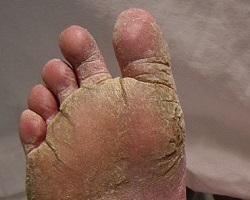show/hide words to know
Antibiotic: a substance that weakens or destroys bacteria.
Antifungal: a medicine used specifically to help your body fight fungus-based infections.
Antiviral: a medicine used specifically to help your body fight viral infections.
Vaccine: a substance that provides immune memory using antigens, or dead or weak viruses or bacteria, instead of from an infection.
Particular Pathogens

Lung infections, like Pneumonia, are often caused by bacteria or viruses. Image by Joseaperez.
Bacteria, fungi, and viruses are very different in the way they infect animals. Viruses typically only affect a specific tissue, like the lungs or blood. This means that the virus must get into your body to have an effect, and your body has all kinds of defenses against this.
Similarly, bacteria usually need to get inside your body. However, any infecting bacteria must make it past the bacteria that you already have living in and on you. Both of these pathogens must then stand up against your immune system, the part of your body that is always on the lookout for infections.
While some fungal infections can spread throughout your body, like Aspergillosis, most occur on the outside of the body and don’t spread to the inside. Fungal infections typically feed on the outer layers of dead skin. This means that a fungal infection doesn’t necessarily need to get inside your body to take hold.

Fungus doesn't have to make it into the body to start an infection. Here, we see a bad case of athlete's foot, caused by fungus. Image by James Heilman, MD.
With all these differences, it makes sense that we would need to use different methods to fight each of these infections.
Can You Fight All Pathogens with Antibiotics?
You’ve probably heard of antibiotics. These drugs are commonly used to treat infection and many people think they can be used to fight any disease. But, it is important to realize that antibiotics are only effective against specific bacteria. This means that they won’t help treat any fungal or viral infection, like a cold or the flu.
If we use antibiotics too much, the bacteria they kill can become immune, meaning they won't be hurt by antibiotics any more. This is how antibiotic-resistant bacteria come about.
Antiviral drugs can be used to treat certain viruses. Colds are not treated, but the flu can be treated if you see a doctor and take medication within two days of showing flu symptoms.
There are specific (and very effective) drugs for fungal infections. In some cases, there are even anti-viral medications that can be taken to shorten the time you are sick. Each of these medications are only effective when used for the right disease.
Viruses and bacteria can sometimes be fought by training your body for a specific attack before it even happens. This is what vaccines do. A weak or dead form of the pathogen is introduced to your body so that you can practice fighting it. Then, if you come into contact with the pathogen later, your body will already know what to do to try to get rid of it.
Vaccines are offered every year for the flu because the flu virus changes or mutates over time, making it different from one year to the next.
Images via Wikimedia Commons. Vaccine image by Joseph R. Schmitt.
View Citation
Bibliographic details:
- Article: Particular Pathogens
- Author(s): Steven Hart
- Publisher: Arizona State University School of Life Sciences Ask A Biologist
- Site name: ASU - Ask A Biologist
- Date published: July 24, 2014
- Date accessed: April 17, 2024
- Link: https://askabiologist.asu.edu/particular-pathogens
APA Style
Steven Hart. (2014, July 24). Particular Pathogens. ASU - Ask A Biologist. Retrieved April 17, 2024 from https://askabiologist.asu.edu/particular-pathogens
Chicago Manual of Style
Steven Hart. "Particular Pathogens". ASU - Ask A Biologist. 24 July, 2014. https://askabiologist.asu.edu/particular-pathogens
Steven Hart. "Particular Pathogens". ASU - Ask A Biologist. 24 Jul 2014. ASU - Ask A Biologist, Web. 17 Apr 2024. https://askabiologist.asu.edu/particular-pathogens
MLA 2017 Style

There are vaccines for many bacterial and viral diseases. There are even a few for fungal infections.
This activity has a companion experiment Let the Germs Begin.
Be Part of
Ask A Biologist
By volunteering, or simply sending us feedback on the site. Scientists, teachers, writers, illustrators, and translators are all important to the program. If you are interested in helping with the website we have a Volunteers page to get the process started.








